Description
Magnetic lifting is the easiest, fastest and most economical method of handling coiled strip steel
Intended Use
Traditional mechanical lifting devices can damage several layers of in the process of gripping the coil, and damage can also take place when the coil is released. Properly designed lift magnets virtually eliminate the possibility of damage.
Features
Much less storage space is required for magnetic handling, since a magnet lifts the coil from directly above the load, eliminating the need for aisle space required by mechanical lifting devices. One crane or truck operator can usually load, transport and unload coils without assistance from the floor, freeing up manpower to be used elsewhere.
Various magnet designs can be utilized for lifting coiled steel, depending on the orientation (eye vertical, or eye horizontal), the gauge of the steel, the size and weight of the coil, it’s temperature, and whether it is banded or loosely wound. The CoilMaster is available in two basic designs, electromagnets and electropermanent magnets. Electromagnets are the traditional design that requires a constant source of D.C. power when energized. These magnets tend to perform well in applications where the surface condition of the coil is irregular, such as a significant amount of edge stagger. Pound for pound, electromagnets will provide the greatest lift to weight ratio of any type of magnet, thus crane capacity can be optimized.
Electropermanent magnets utilize permanent magnetic material surrounded by an electrically powered coil. To energize an electropermanent magnet, a momentary pulse of D. C. power is applied to the magnet’s coil in order to charge the permanent magnetic material within. Once energized, the electropermanent magnet does not require a constant source of power to retain the lifted steel coil. To release the steel coil, a reverse pulse of D. C. power is applied to the magnet’s coil. The Electropermanent magnet design tends to excel when the steel coil’s edge stagger is kept to a minimum.
Applications
Special Adaptations (Standard Circular, Rectangular, and Bi-Polar)
Able to prevent “telescoping”
Less storage space required
Transport requires less manpower

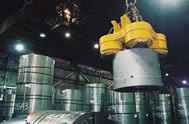
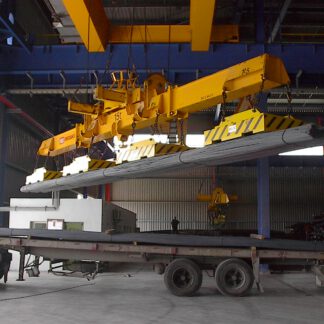
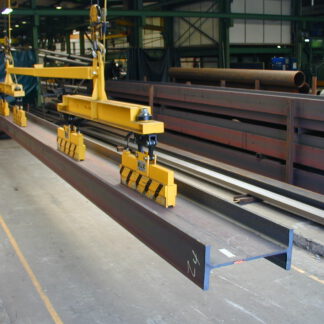
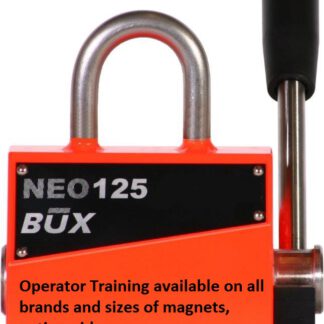

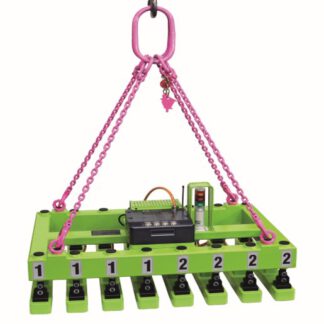
Reviews
There are no reviews yet.